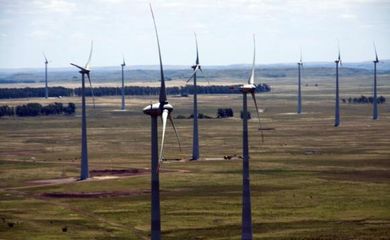American countries commit to boosting green economy


The promotion of green economy—conciliating development, environment, and the reduction of poverty—includes dialogue between the government, civil society, and companies. Such was the main conclusion drawn by the participants of the 1st Americas Regional Ministerial Conference on Green Economy, which ended in Fortaleza, Ceará state, on Wednesday (26).

In the meeting, Latin American and Caribbean countries approved a joint document with commitments to boost sustainable development in the continent. The final text will not be published until next week, but a preliminary version includes 22 suggestions.
The recommendations are split into four categories: the creation of transition policies and a legislative environment for a green economy model, the promotion of the use of and the increase in innovative technology, the expansion of the role of green funding to ensure enough resources for sustainable development, and the preparation of society for countrywide development actions.
Green and blue
Among the actions suggested are the use of the indicators from the Organization for Economic Cooperation and Development (OECD) to gauge the progress of policies on the transition to a green economy, the integration of new green economy technology with blue economy (not detrimental to the ocean) and the 17 UN sustainable development goals, and the close monitoring of policies with room for adjustments.
The document also recommends updating tax systems to facilitate access to innovative technology, the dialogue between government, society, companies, and consumers to create a positive environment for innovation and change in the culture of private investors through new green funding tools, like carbon credit (the purchase of polluting rights in exchange for funding for social and environmental projects) and green bonus (securities of sustainable development projects).
The text also advocates the inclusion of social parameters in project assessment and investment in training agents from the government, society, and companies for sustainable development.
False dilemma
Ukrainian diplomat Edem Bakhshish, regional coordinator of the United Nations Office for South–South Cooperation and member of the World Green Economy Organization, argued the green economy agenda should be massively publicized as a means to escape what he termed a false dilemma between development and environment.
“In order for substantial changes to take place, people need to remove differences. They must be led to understand the benefits of green economy and that subscribing t sustainable practices do not keep opportunities away, but rather bring new perspectives,” Bakhshish told Agência Brasil.
Bakhshish explained that Latin America and the Caribbean have great potential for sustainable development, especially through well handled agriculture, extractivism, and tourism. He said, however, that the spread of good practices is rather heterogeneous in the region, with some very advanced small countries and countries that have just started their transition.
“The advantage is that the countries in the region are willing to learn from their peers, especially because it’s an advanced region in South–South cooperation,” he noted, adding that, in some countries in Latin America and the Caribbean, the market for green funding manage to launch countrywide projects.
Green economy
Instiuto Brasil África President João Bosco Monte, the Brazilian organizer of the event, said the conference taught the country important lessons. “Brazil cannot forgo an agenda built over time. We learned here that the countries that are still willing to continue the dialogue are making strides. It’s hard work negotiating an agenda for the environment. Sustainability, the environment, and diversity are inexorably on Brazil’s agenda.”
The 1st Americas Regional Ministerial Conference on Green Economy was organized by the World Green Economy Organization, the United Nations Office for South–South Cooperation, and the Instituto Brasil África. The event was supported by Ceará’s state government in partnership with the UN Secretariat for Climate Change, the UN Development Program, and International Solar Alliance.


